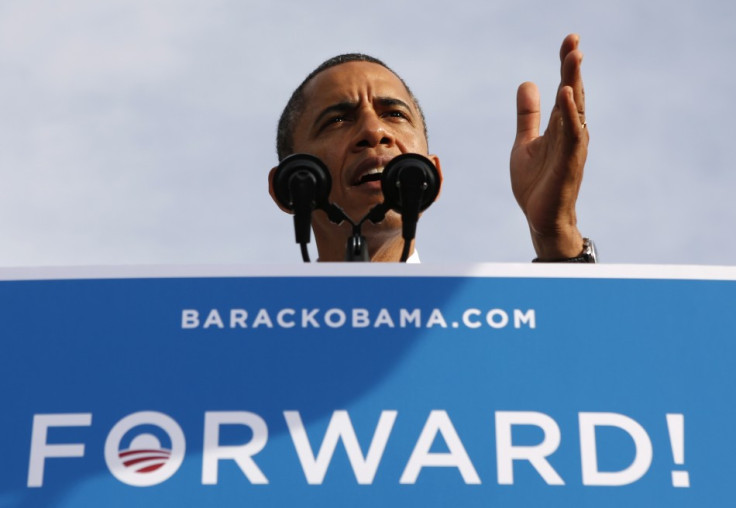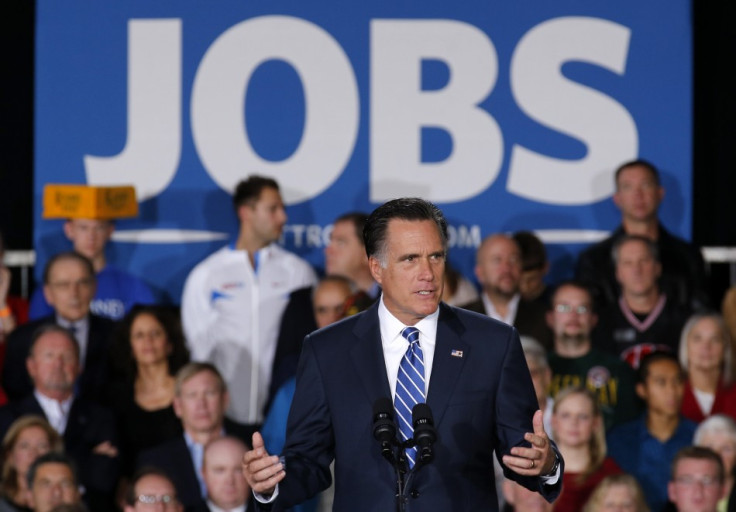US Presidential Elections: Obama Wins Endorsement Race over Romney the Unreliable
Several prominent publications have decided to back Obama because of Romney's too many faces

New York Mayor Michael Bloomberg has been the last in a series of endorsement US President Barack Obama seemed to have received more for the various question marks surrounding Mitt Romney's policies than for his own credentials.
"If the 1994 or 2003 version of Mitt Romney were running for president, I may well have voted for him," the once-Republican Bloomberg wrote in an opinion piece, explaining that he is going to vote for Obama instead since the Republican "reversed course" on much of his ideals.
Democrats have often accused the Republican candidate of changing position on too many issues, in a desperate effort to please radical conservatives and undecided centrist at the same time.
Romney's shifting beliefs paid off in first instance. He managed to be liked enough by his party ultra-conservative forces to win the Republican candidacy, to then catch up with Obama in the race for the White House by assuming a more moderate stance.
"Mitt Romney, the former governor of Massachusetts, has gotten this far with a guile that allows him to say whatever he thinks an audience wants to hear," the New York Times wrote in the editorial piece Barack Obama for Re-election.
However the confusion created by Romney's various backtracks perplexed many political players and observers, that then decided to "stick with the devil" they know, as the Economist wrote, endorsing Obama despite his sometime disappointing first term.
"Like so many other independents, I have found the past four years to be, in a word, disappointing," Bloomberg wrote, to then conclude saying that anyway he "will be voting for him."
"Mr Obama's first term has been patchy," wrote The Economist, "[his] shortcomings have left ample room for a pragmatic Republican, especially one who could balance the books and overhaul government."
"Such a candidate briefly flickered across television screens in the first presidential debate. This newspaper would vote for that Mitt Romney, just as it would for the Romney who ran Democratic Massachusetts in a bipartisan way (even pioneering the blueprint for Obamacare). The problem is that there are a lot of Romneys and they have committed themselves to a lot of dangerous things."
"Every politician changes his mind sometimes; you'd worry if not. But rarely has a politician gotten so far with only one evident immutable belief: his conviction in his own fitness for higher office," the Washington Post wrote in its Obama endorsement piece.
Romney's jumbling up policies swept from economics to foreign affairs and civil rights, making him a candidate difficult to be trusted with the keys of the world most powerful nation.

Economics
Analysts have accused Romney of supporting a right-wing republican economic plan built on tax cuts and deregulation that doesn't pass the reality test and that many say an expert businessman, including the Romney who was the former Bain Capital CEO, would dismiss it as a fantasy.
"He [Romney] advocates an economic plan that would not stand up to scrutiny by a Bain Capital consultant. In the contortions of his campaign positions it is hard to see where political calculation ends and the real Mr Romney begins," The Times of London wrote.
"Mr Romney is still in the cloud-cuckoo-land of thinking you can do it [rescue the economy] entirely through spending cuts: the Republican even rejected a ratio of ten parts spending cuts to one part tax rises. Backing business is important, but getting the macroeconomics right matters far more," said The Economist.
Foreign Policy
Romney's foreign policy has been described by Former US Secretary of State under George W. Bush Colin Powell as a "moving target," and some of its contents have worried political observers.
"At times he [Romney] has advocated a muscular, John McCain-style foreign policy, but in the final presidential debate he positioned himself as a dove," said the Washington Post.
"He has surrounded himself with Bush administration neocons who helped to engineer the Iraq war, and adopted their militaristic talk in a way that makes a Romney administration's foreign policies a frightening prospect," wrote the New York Times.
"Mr Romney seems too ready to bomb Iran, too uncritically supportive of Israel and cruelly wrong in his belief in "the Palestinians not wanting to see peace". The bellicosity could start on the first day of his presidency, when he has vowed to list China as a currency manipulator-a pointless provocation to its new leadership that could easily degenerate into a trade war," warned The Economist.
Civil Rights
On civil rights issues, pro-same-sex-marriage Obama scored an easy victory against a Romney that "In the past has also taken sensible positions on immigration, illegal guns, abortion rights and health care," but then "has reversed course on all of them," as Bloomberg wrote on the Bloomberg news website.
Romney has often been embarrassed by controversial remarks on rape and abortion made by Republican candidates during the campaign. Although he had distanced himself by his party mates he has also kept a strict stance on the issue not to alienate America's far right.
"Romney has been careful to avoid the efforts of some Republicans to criminalize abortion even in the case of women who had been raped, including by family members. He says he is not opposed to contraception, but he has promised to deny federal money to Planned Parenthood, on which millions of women depend for family planning," the New York Times said.
By contrast Obama's achievements were solid if not spectacular.
"Obama still commands great goodwill in the world and can stand on his economic record, given a very difficult inheritance. He deserves a second term," The Times concluded.
© Copyright IBTimes 2025. All rights reserved.






















